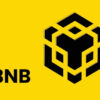
In recent years, cryptocurrency has taken the world by storm. While most of the headlines focus on Wall Street or tech hubs, rural communities could stand to benefit from crypto in some unique ways. Living off the beaten path, you often deal with limited access to traditional banking and financial services, but cryptocurrency could change that. Whether you’re living on a farm, running a small business, or building a tiny house in the middle of nowhere, here are ten practical ways rural communities can tap into the power of crypto.
1. Empowering Local Businesses
Small, local businesses are the backbone of rural areas, but sometimes they struggle with outdated payment systems. Imagine your local farmer’s market accepting Bitcoin for a bushel of apples. Crypto payments can streamline transactions, cut down on fees, and attract tech-savvy tourists looking to spend their digital coins. All you need is a smartphone, and you’re open for business.
2. Microloans for Farmers and Entrepreneurs
Access to credit is often limited in rural areas. Cryptocurrency platforms like Ethereum can be used to create smart contracts, offering microloans to farmers or small business owners. With a transparent and decentralized system, people can fund projects in their communities without relying on big banks.
3. Energy Trading in Off-Grid Communities
If you’re living off-grid or in a rural area with inconsistent access to electricity, crypto can enable peer-to-peer energy trading. Using platforms like Power Ledger, you could trade excess solar power with your neighbors, and the entire transaction can be logged on the blockchain. This creates a sustainable, self-sufficient community with minimal external dependence.
4. Remittances Without the Hassle
Many rural communities have residents who send or receive remittances from family members working abroad. Instead of paying high fees through traditional remittance services, families could use cryptocurrencies like Litecoin or XRP, which offer faster and cheaper transactions. The money arrives directly in the recipient’s wallet—no middleman needed.
5. Decentralized Internet Access
In rural areas, reliable internet can be a luxury. Some projects, like Helium, aim to decentralize internet access by incentivizing individuals to create local networks using cryptocurrency. By sharing a portion of your internet bandwidth, you earn tokens, which can be used to expand internet coverage for the entire community.
6. Creating a Local Cryptocurrency
Why not create your own local currency? Some rural communities have started their own cryptos to keep wealth circulating within their local economy. It could be as simple as creating a token system where locals can trade goods and services using a community-specific cryptocurrency. It’s like bartering but with a digital twist.
7. Secure Property Records
Land and property rights can be a headache in rural areas, where official records may be outdated or hard to access. Blockchain technology offers a tamper-proof way to record property ownership. By using platforms like Propy, rural residents can securely store their land records on the blockchain, reducing disputes and making land transfers more transparent.
8. Supply Chain Transparency for Local Producers
If you’re running a small farm, vineyard, or artisanal business, you know how important it is for customers to trust your products. Blockchain can help create transparency in your supply chain. Imagine your customers scanning a QR code and seeing every step your product took from farm to table, all recorded securely on the blockchain. This builds trust and adds value to your goods.
9. Peer-to-Peer Insurance
Rural life comes with its own set of challenges, from unpredictable weather to equipment breakdowns. Traditional insurance can be costly, but blockchain-based, peer-to-peer insurance platforms offer a decentralized alternative. In this model, community members pool their resources to create a shared fund, using smart contracts to ensure fairness and transparency.
10. Education and Skills Development
In rural areas, access to quality education and training can be limited. Blockchain-based platforms like BitDegree offer online courses in everything from programming to finance, and learners can even earn tokens as they complete courses. This creates opportunities for people to learn new skills and adapt to the growing demand for tech expertise, even from the comfort of a remote farmhouse.
Final Thoughts
Cryptocurrency isn’t just for urbanites and tech enthusiasts. With the right approach, it can empower rural communities in ways that traditional systems often fail to do. Whether it’s creating your own local currency, accessing decentralized loans, or trading renewable energy, crypto offers countless possibilities to make rural living more sustainable, connected, and financially inclusive.
The digital future might just arrive in the most unexpected places—like your backyard.










